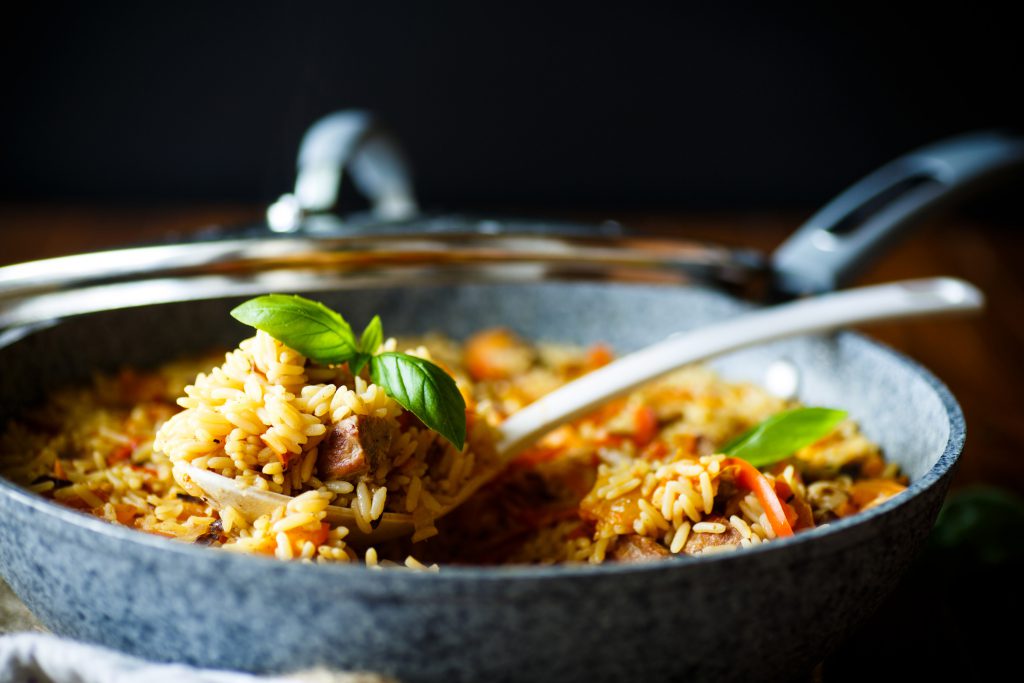Read about Saraka: A Time of Alms and a Celebration of Community!
by Lou-Ann Jordan Apr 1, 2024

The beauty of being from a nation of diverse heritage is the many different festivals often observed.
The Caribbean islands do not want for festivals. Some are hugely popular and draw a faithful crowd to the host island each year. Then there are others that, though long in tradition, are still relatively unknown in the wider region and sometimes even within the island.
Saraka, believed to mean ‘thanksgiving’ or ‘feeding of the children’, is one such festival. It is a food festival that traces back to West Africa, and is believed to have been brought to Grenada by the enslaved Africans. The slaves practiced saraka to honour their ancestors. It was a time to offer thanks or request help.
Today, the longstanding tradition continues in the same vein (on both the mainland and Carriacou). In Carriacou, the celebration is incorporated into their String Band and Maroon Festival festivities. However, in Grenada, it stands alone. The almsgiving festival is always eagerly anticipated in River Sallee, La Potrie, and Hermitage, with River Sallee’s being the most widely attended. Every year, on the first Friday after Easter Monday, families and friends gather to practice the ritual of feeding the community.
River Sallee’s Saraka 2024 will occur this year on Friday, 5 April. As is customary, people from other parishes will converge on the residents of St. Patrick to partake in their generosity. Why generosity? Because the food served during Saraka is free! In recognition of and gratitude for the blessings, they’ve received from their ancestors. Villagers, singing joyfully, lay out an array of local dishes on banana leaves. Adults serve the little ones in the community first, and then all others follow.
There is likely to be much entertainment with the memorable nation dance—dancers form a circle swaying to the poignantly rumbling beat of accompanying drums. Visitors will also enjoy the sense of community and camaraderie the occasion evokes. With the underlying tenets of practising gratitude and fostering unity, saraca is always a time that feeds both the body and the soul.
So, whether you live here or plan to visit at Easter, it’s an excellent reason to take a trip to the parish of St. Patrick.
Here are a few fun facts about saraka:
- There are a couple of variations in spelling and pronunciation, for example, saraca, salaka or salaca.
- Saraka, as it’s pronounced by locals, is also celebrated annually in Tobago. Many attribute the custom to Grenadian immigrants who lived on the island.
- Saraka is said to have been derived from the Arabic ‘sadaqah’, which means charity or kindness. A similar term, tzedakah, is also found in Hebrew. It primarily defines peoples’ behaviour in that they should act in a way that is fair and ethical toward each other. It is also associated with the idea of building trusting relationships. Furthermore, its secondary meaning is charity.
- Saraka is a tradition maintained in some African countries, namely Mali and Senegal.
Saraka is a meaningful tradition that will hopefully continue for generations to come, with its true nature remaining unchanged. It is important to remember that, in addition to being a charitable offering, saraka is also an act of righteousness because it helps establish trusting relationships.
Sources: Curtis, Edward. Encyclopedia of Muslim-American History. Infobase Publishing, 2010 and Greene, Brenda M. The African Presence and Influence on the Cultures of the Americas. Cambridge Scholars Publishing, 2010.








